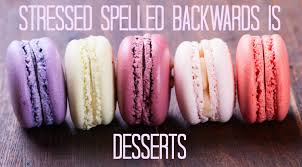Are you an emotional eater?

Emotional eating can be the major reason we accumulate extra pounds of fat. Remember every pound of fat requires your body to build hundreds of miles of blood vessels just to exist. This puts an extra unnecessary load on the heart. The extra pumping the heart must do can lead to hypertension, or high blood pressure. Heart attacks and strokes are also more common when the heart is working harder because of this excess fat. Even type two diabetes is much more common when excess belly fat contributes to insulin resistance. There are many more reasons as well to lose excess fat and keep it off to insure a longer, healthier life. Is emotional eating causing you to put on those extra pounds of fat and if so, what can we do to avoid this very common reason so many people are overweight?
First of all what is emotional eating? It is simply turning to food for comfort or to relieve stress. Normally we eat when we are physically hungry. We get hungry because we need calories, usually from carbohydrates, for energy and or amino acids to build the proteins which make muscles. We also get hungry because we need the vitamins and minerals in foods to build bones and keep our immune systems strong. We even require a certain amount of fat in our diet to keep our brains functioning properly. These are all wonderful reasons for the physical hunger we experience everyday. Hunger causes us to eat so we can keep our bodies strong and well nourished. We can be well satisfied by eating properly and eating the right amount of food in response to physical hunger. Our weight stays balanced and we do not accumulate those excess pounds of fat.
An emotional eater, on the other hand, not only eats in response to physical hunger but also when they are not physically hungry. An emotional eater eats for the comfort food can bring. They may eat when they are not even hungry. Emotional eaters eat when they are anxious, depressed or exhausted to get a temporary relief from the stress of all these emotions. Not only does this result in excess calories being consumed and inevitable excess fat accumulation but now one has to cope with the guilt of overeating as well. This can turn into a vicious cycle which gets worse and worse and harder and harder to break.
To find out if you have a significant emotional component when it comes to eating consider how many of the following questions you would answer yes. The more questions you answer yes to the more likely you are an emotional eater.
1. Do you often eat when you are not hungry or even full?
2. Do you eat when you are stressed or exhausted?
3. Do you ever feel powerless when you are around food?
4. Do you ever eat to feel better?
5. Do you ever eat when you are angry, bored, sad or nervous?
6. Do you feel like food can be a friend to bring comfort?
Although we all can answer yes to some of those questions from time to time, emotional eating can become a problem when your eating habits are often characterized by yes answers to the above. If you find you may, in fact, have an emotional component to your eating habits, take heart. There are some very simple things you can do to avoid emotional eating and its inevitable consequence, excess fat accumulation. That will be the subject of our next blog. Stay tuned to rule over food.
